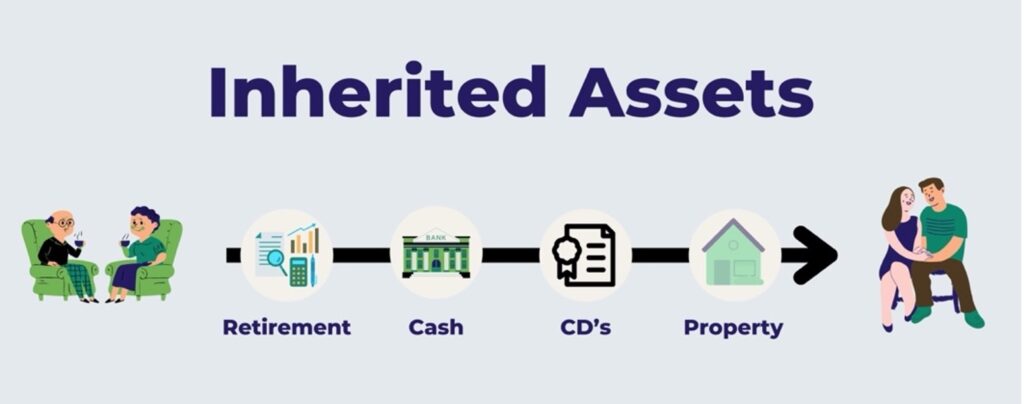In the coming years, the world will witness the largest generational wealth transfer in history, largely due to the aging Baby Boomer generation, which controls a significant portion of global wealth. By 2030, this wealth transfer is estimated to reach approximately $68 trillion. Considering the substantial assets that the Baby Boomer generation has accumulated, it’s important to ask: What steps should be taken to responsibly manage these assets upon inheritance?
When inheriting assets, the majority of the decedent’s wealth is often held in cash, real estate, bank Certificate of Deposits (CD), and retirement accounts. The first step in preparing for a smooth generational transfer of wealth is to set up an Estate Plan. Establishing a Trust is highly recommended because it creates a solid foundation and clearly outlines what happens to the assets after the decedent’s passing. The grantor, or the individual who owns the Trust and assets within it, can establish rules and guidelines for the distribution of their assets. This includes specifying how the assets are divided among beneficiaries and even when those individuals may receive the assets. However, what happens if it is too late, and no Estate Plan is in place?
In the absence of an Estate Plan or correct beneficiary designations, the decedent’s assets are held up in probate court, which can be a lengthy and expensive process. An executor or administrator must be appointed to manage the estate. An attorney is usually involved to help with appraising assets, paying any estate taxes, and distributing the remaining assets. This is a simplified explanation, as various nuances to estate matters cannot be fully summarized.

Depending on the Estate Plan you may inherit these assets and not know what to do with them.
- Cash in the bank: Usually divided and distributed among beneficiaries.
- Bank Certificate of Deposit (CD): Inherited based on designated beneficiaries, allowing you to hold until maturity or liquidate for cash.
- Property: Depending on the Estate Plan and how the property is titled, you have several options for inheritance. This decision hinges on various factors. For instance, if the property is titled in a Trust, ownership will be swiftly transferred to the beneficiaries according to the Trust’s terms. If you jointly own the property and inherited it upon the decedent’s passing, you can re-title it in your name. This is significant because, as a beneficiary of a property held in a Trust, you can benefit from inheriting it at a stepped-up basis. Conversely, if you jointly own a property and the owner passes away, you may not receive a stepped-up basis.
- Retirement Accounts: This also depends on the Estate Plan in place. If you have Individual Retirement Accounts (IRAs) and other investment accounts, they will be divided according to your Estate Plan or beneficiary designations. Similar to property, certain investment accounts can benefit from a stepped-up basis, making it crucial to keep your beneficiaries up to date.
The primary concern is ensuring your assets will be inherited and managed effectively. While this may seem overwhelming, it can be broken down into a few key steps. We recommend that you properly title the assets in your name or according to your Estate Plan. This step is crucial, especially if your Estate Plan requires retitling; make sure all accounts, property, and other assets are titled correctly to reflect your wishes. Keeping your beneficiaries up to date on all assets is essential, whether you have an Estate Plan or not.
At Wisely Advised, we are dedicated to helping you navigate the process of passing down your hard-earned wealth smoothly and confidently. Please feel free to reach out if you have any questions about how we can assist you with your Estate Plan.
